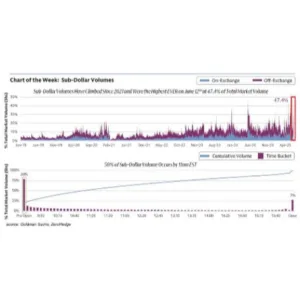The Bank of Japan (BoJ) holds a significant position in Japan’s financial markets. According to data from Morningstar and the Tokyo Stock Exchange, the BoJ owns approximately 80% of the country’s exchange-traded funds (ETFs) and around 7% of the entire Japanese stock market. Moreover, the BoJ holds about 55% of all Japanese government bonds (JGBs), making it a central figure in maintaining Japan’s economic stability.
Massive Holdings in Government Bonds
The BoJ’s bond-buying program has been crucial to its ultra-loose monetary policy, aimed at keeping borrowing costs low. By holding 55% of JGBs, the BoJ ensures that 10-year bond yields remain close to zero through its yield curve control (YCC) policy. In 2023, the BoJ made slight adjustments to this policy under Governor Kazuo Ueda, allowing some flexibility in yields. Despite these tweaks, the central bank continues to intervene heavily in the bond market to keep interest rates down, supporting Japan’s recovery from slow growth and inflation.
The Role of ETFs in Japan’s Economy
The BoJ also dominates the ETF market, owning 80% of the country’s ETFs. This strategy has been used to support the stock market and encourage investment in companies that adopt better corporate governance practices. However, some analysts have raised concerns that this level of intervention distorts market prices and limits free-market dynamics, reducing price discovery and encouraging risk-taking among investors.
Challenges Ahead
While the BoJ’s policies have stabilized the economy in the short term, there is increasing pressure for a gradual tapering of its bond-buying and ETF-purchasing programs. As Japan’s inflation begins to inch closer to its 2% target, the question of whether the BoJ will ease its monetary policies becomes more pressing. Market participants are closely watching for any signs of policy shifts that could affect bond yields, stock market movements, and the broader economy.
Conclusion
The Bank of Japan’s unprecedented involvement in the nation’s bond and stock markets has been instrumental in supporting Japan’s economy. However, as Japan navigates new economic challenges, including inflation and global uncertainties, the BoJ’s strategies will likely face more scrutiny. How the central bank adapts to these challenges will shape Japan’s financial landscape in the coming years.
By maintaining its massive holdings in ETFs and government bonds, the BoJ remains one of the most influential players in the global financial system, but with great influence comes great responsibility in managing the risks and opportunities for Japan’s economy.
Bringing you the latest updates on finance, economies, stocks, bonds, and more. Stay informed with timely insights.
















Be First to Comment